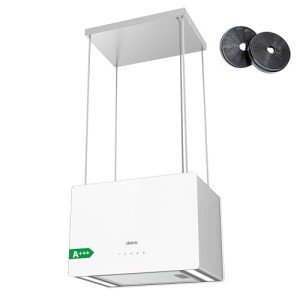The 10 Most Scariest Things About Island Extractors
페이지 정보
본문
Island Extractors: A Comprehensive Guide to a Unique Industry
In the realm of extraction markets, few sectors record the creativity as clearly as that of island extractors. These specialized entities focus on the extraction of valuable resources, both sustainable and non-renewable, from island environments. This article digs into the multifaceted world of cooker island hood extractors, discussing their operations, ecological effects, and the future of this niche industry.
Understanding Island Extraction
Island extractors are companies or people that participate in the extraction of natural resources found on islands. This extraction can include a range of products, such as minerals, fossil fuels, and even marine resources. Given the unique communities found on islands, the extraction procedure can present both chances and inherent difficulties.

Classifications of Island Extraction
island cooking hood extraction can normally be classified into several categories:
| Category | Description | Examples |
|---|---|---|
| Mineral Extraction | The removal of minerals from the earth | Kaolin, Bauxite, Iron Ore |
| Fossil Fuel Extraction | Extraction of fuels formed from raw material over millennia | Oil, Natural Gas |
| Marine Resource Extraction | Harvesting resources from oceanic environments | Fish, Seaweed, Shellfish |
| Sustainable Resource Extraction | Extraction of sustainable resources | Timber, Freshwater |
The Process of Island Extraction
The extraction procedure itself can vary significantly based upon the resource in question. The procedures for extracting oil diametrically vary from those for gathering seafood.
Steps in the Extraction Process
- Expedition: This phase includes geological studies and initial research studies to examine the potential of the resource.
- Laws Compliance: Compliance with local and international ecological laws is vital to ensure sustainable practices.
- Extraction: This consists of drilling for oil or mining for minerals, and can cause significant disturbance to local ecosystems if not managed properly.
- Transportation: Extracted resources generally require transport back to the mainland or other markets, typically involving making use of ships and barges.
- Post-Extraction Restoration: Efforts to bring back the environment post-extraction are vital to mitigate long-lasting effects.
Ecological Impact of Island Extraction
Offered the fragile nature of island ecosystems, 48 Island Range Hood the ecological impact of extraction activities can be significant.
Key Environmental Concerns
- Environment Destruction: The physical removal of landscapes can ravage local flora and fauna.
- Contamination: Resource extraction can introduce toxins, resulting in ocean acidification, water contamination, and air quality deterioration.
- Coastal Erosion: Activities can exacerbate seaside erosion, changing the natural landscape and affecting regional neighborhoods.
- Biodiversity Loss: Extractors frequently interfere with regional ecosystems, positioning native species at threat.
Mitigation Measures
To counteract these impacts, island cooking hood extractors are significantly adopting sustainable practices which consist of:
- Implementing stricter environmental policies
- Using technology for more secure extraction processes
- Conducting extensive environmental effect evaluations (EIA)
- Engaging with regional communities throughout preparation and operation phases
The Future of Island Extraction
As international demand continues to increase cooker hoods for islands natural resources, the future of island ventilation hoods extractors appears appealing yet intricate. A number of factors will shape the trajectory of this industry in coming years:
- Technological Advancements: Innovations in extraction technology might cause more effective and less ecologically disruptive techniques.
- Regulatory Changes: As environment change ends up being an ever-pressing concern, stricter regulations may redefine extraction practices, prioritizing sustainability.
- Pressure from Environmental Groups: Increased advocacy for the defense of biodiversity and communities can affect functional protocols.
- Shift towards Renewable Resources: A growing focus on renewable resource options might change the focus from non-renewable extraction to sustainable practices.
Regularly Asked Questions
What resources are typically drawn out from islands?
Common resources drawn out from islands include minerals, nonrenewable fuel sources, wood, freshwater, and marine resources such as fish and seaweed.
How do island extractors make sure sustainability?
48 Island Range Hood (Https://Git.Fuwafuwa.Moe/Screenmask6) extractors can ensure sustainability by adhering to environmental policies, incorporating innovation that reduces impact, and restoring environments post-extraction.
What are the significant obstacles dealt with by island extractors?
Difficulties include compliance with regulations, managing ecological effects, logistical issues connected to transportation, and engaging with regional neighborhoods impacted by extraction.
Exist any notable island extraction projects?
Yes, different tasks exist worldwide, consisting of mineral mining in the Caribbean, oil drilling in the North Sea, and sustainable fish farming initiatives in Southeast Asia.
The world of island extractors is an intricate interaction in between economic opportunity and ecological duty. As this market progresses, the difficulty will be to stabilize resource extraction with the need to secure fragile island communities. By welcoming sustainable practices and engaging with local neighborhoods, island extractors can forge a path that respects both nature and market, ensuring that these distinct environments are protected for generations to come.


